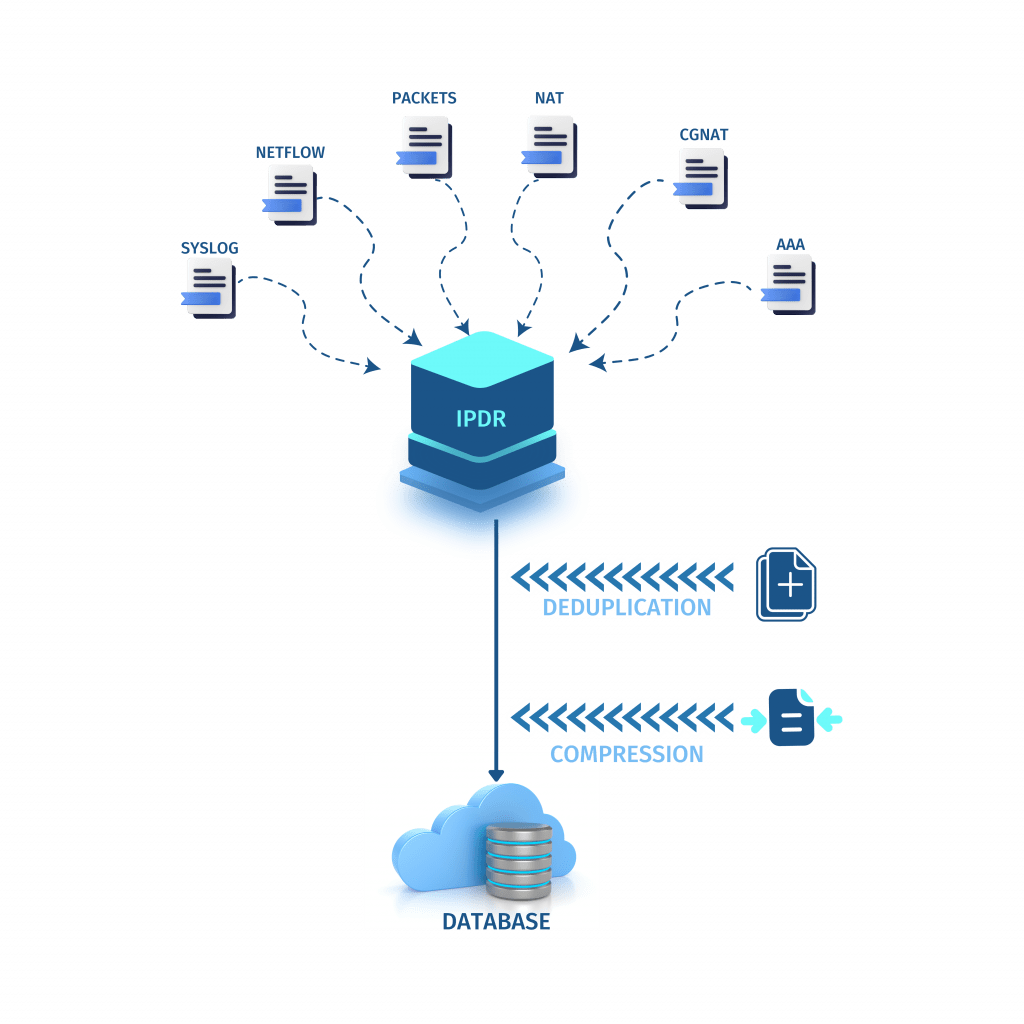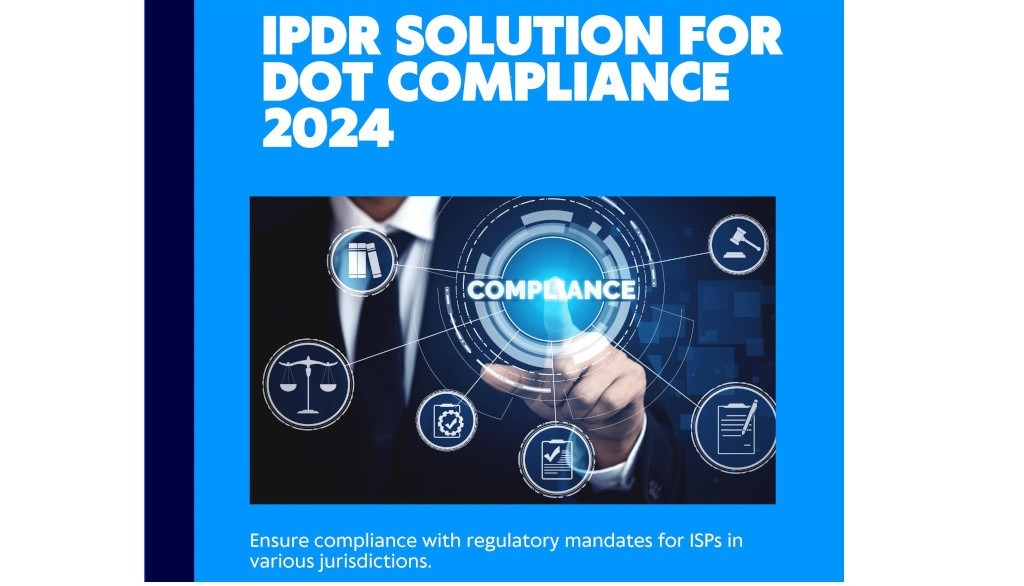Table of Contents
What is IPDR
Internet Protocol Detail Record (IPDR) is a standardized format for collecting and recording the metrics of data traffic that flows in a network. It provides detailed information on the incoming and outgoing network traffic such as Source IP, Destination IP, Timestamps, Source Port, Destination Port, and the Protocol used, etc. By collecting, analyzing, and leveraging these data, ISPs gain a comprehensive insight to enhance their network management and ensure regulatory compliance and audit.
Importance of IPDR
Traditionally Internet Service Providers used a static internet protocol IPv4 where the assigned IP address remained unchanged until the device was discarded. With the evolving need for telecom industries to allocate dynamic IP addresses, it became challenging for Law Enforcement Agencies to track for evidence due to the allocation of dynamic IP addresses. In addition to use of dynamic IP Addresses, service providers used technologies such as Network Address Translation (NAT) to conserve IP address. Service providers did not maintain an Internet Protocol Detail Record (IPDR) log which made it impossible for the LEAs to investigate such cases. In 2021, the Indian Telecom Regulatory Department of Telecommunications (DoT) mandated ISPs [see Reference: 1] to maintain an IPDR log for two years which when failing to produce would result in stiff penalties. While ISPs in India must submit IPDR according to the Compliance letter mandated by DoT/TRAI Guidelines, IPDR is not limited to the purpose of compliance.
How IPDR works
The Network flow parameters are continuously captured from sources like routers, switches, firewalls, NAT devices, AAA servers etc. Unlike Network traffic analysis IPDR data elements include a limited set of input metrics required for DoT/TRAI compliance. By correlating flow records, NAT events, and AAA events, a complete log of flow activities are stored in a secured server.

Storage of fields such as start timestamp of the flow, end timestamp, Source IPV4 or IPV6 address, Source port, Destination port, Translated source address, Translated source port, User ID from AAA, Router IP reporting the flow, Source MAC address of the device is sufficient to meet the compliance requirements.
Benefits of IPDR
IPDR data enables operational teams to provide a robust network and LEAs to prosecute cases under the Indian Evidence Act meeting the standards of electronic evidence.
Challenges with traditional IPDR Solution
The primary challenge of an IPDR system is to capture extremely high volumes of flow events and store them as efficiently as possible. Due to the rise of data-intensive applications and devices, a traditional IPDR solution faces challenges in processing high volumes of network traffic. Consequently, it consumes more time when logs are repeated in a flow, resulting in delays in query response time. Moreover, the flow records received from ISPs occupies significant storage space.
In response to these limitations, advanced software suites like Trisul IPDR Solution offers real-time analysis, deduplication and compression techniques, ensuring efficient storage, fast query response time and render cost efficient compliance solution.
Conclusion
In conclusion, IPDR (Internet Protocol Detail Record) serves as a critical tool for Internet Service Providers (ISPs), enabling effective network management, adhering to regulatory compliance, and aiding Law Enforcement Agencies in tracking dynamic IP addresses. Mandates such as those by the Telecom Regulatory Authority of India (TRAI) underscore its importance, requiring ISPs to maintain IPDR logs. While traditional IPDR solutions face challenges with processing high traffic volumes efficiently, advanced software suites like Trisul IPDR Solution offer solutions such as real-time analysis and compression techniques, ensuring efficient storage and compliance. Thus, an efficient IPDR solution plays a pivotal role in modern network infrastructure, facilitating both operational efficiency and regulatory adherence.
References
- Dept of Telecommunications India IPDR Mandate to all ISP LIcensees dated 16-11-2021. Compliance of revised IPDR format notified vide DOT letter no 8520-01/98-LR/Vol-IX Pt. I dated 16.11.2021 | Department of Telecommunications | Ministry of Communication | Government of India
